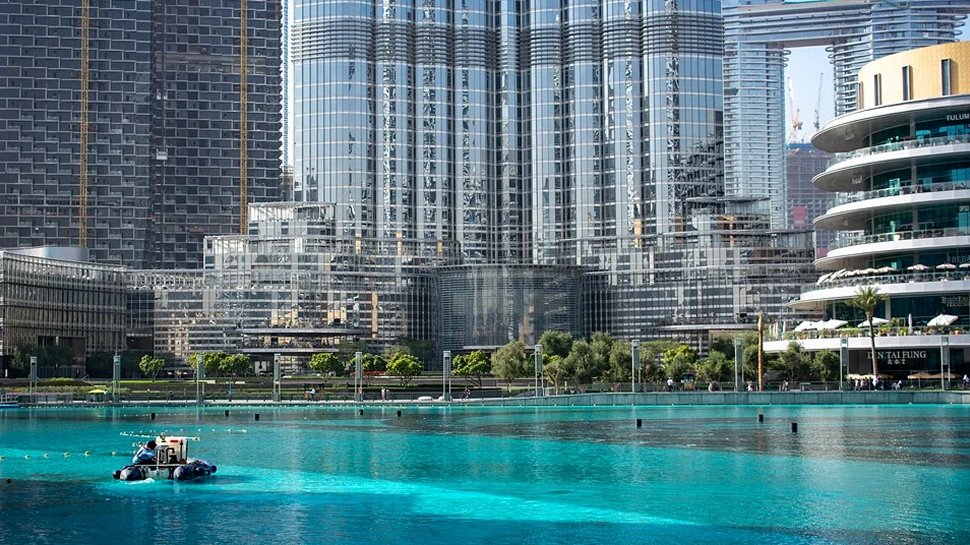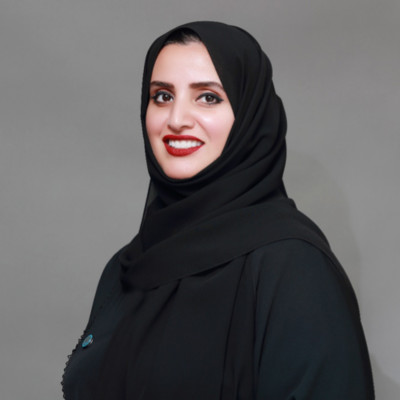How Dubai aims to become the next Silicon Valley
Going digital smartly in Dubai

1. What are some of the main innovation/ tech projects that Dubai government and SDO are spearheading at the moment?
The most innovative project Smart Dubai is currently working on is the Dubai Paperless Strategy. The aim of the Dubai Paperless Strategy is to completely eradicate the use of physical paper for all government to individual transactions and processes, both front-end and back-end, by the end of 2021.
We are doing this by digitizing over 300 government to individual transactions and offering them on one single mobile application - DubaiNow. When we have succeeded in delivering all aspects of this strategy for document management, it will be the first time such has happened anywhere in the world and thus we will have exponential social, economical and environmental benefits for the city.
We have estimated that by the end of 2021, the city will be annually eliminating use of over 1 Billion sheets of paper, and saving the city AED 900 Million in unnecessary paper and infrastructure costs, 125 Million Hours otherwise spent traveling from one entity to the other for document processing, and saving over 130,000 trees due to lack of paper use.
As of February 2020 we will have completed 2 years of implementing the Dubai Paperless Strategy and have so far eliminated 158 Million sheets of paper use, saving AED 684 Million and 19,000 Trees.
Dr. Aisha Bint Butti Bin Bishr, Director General, Smart Dubai..
2. How does Dubai plan to be a world a world leader in encouraging smart city development? How far along in this strategy is Dubai?
Being a global leader in smart city development to us would mean other counties and cities looking at the concept of ‘smart city transformation’ from our eyes -which is to make Dubai the happiest city on Earth.
At Smart Dubai, being technologically advanced is a means to achieving our vision of greater happiness levels across the city. We wish to understand emerging technologies, study how these can benefit the residents and visitors of Dubai, and accordingly only deploy those technologies that are predicted to have the maximum positive impact.
In order to make this happen, we have taken a holistic approach to designing our smart city - we are not focusing on one industry sector or any one technology - different government bodies are studying the power of different technologies to understand what best suits them. We therefore are leveraging the power of all nascent technologies, ensuring we positively impact all industry sectors of the city.
Are you a pro? Subscribe to our newsletter
Sign up to the TechRadar Pro newsletter to get all the top news, opinion, features and guidance your business needs to succeed!
With technology so rapidly advancing every day, we do not define a deadline for Dubai’s smart transformation, as with every new technology comes an opportunity to further enhance and better the lives of the city’s residents and visitors. Our role as Smart Dubai therefore is to be agile and keep learning, evolving and adapting, ensuring we are always working towards raising happiness levels across the city.
3. What value did you see in Blockchain, especially from a government perspective that you decided to embark on a Blockchain Strategy?
Prior to the launch of the Dubai Blockchain Strategy we understood the massive potential the technology has in terms of time and cost savings, reduction in carbon emissions due to the lack of paper use and reduced travel on roads, and most importantly the security levels the technology provides around transaction processing.
We envision Blockchain will also play a key role in achieving the goals of the Dubai Paperless Strategy which aims to eliminate the use of all paper when executing Government to Individual transactions.
4. Could you shed some more light on some of the achievements of the strategy?
- 24 Blockchain use cases are now being implemented across 8 industry sectors
- From 2015 to 2017, Dubai’s Blockchain community grew by 24%, five percentage points above the global average of 19%
The Dubai Blockchain Strategy was launched with 3 pillars:
Government Efficiency - This pillar is aimed at identifying and implementing Blockchain use cases in Dubai. Over the past 4 years we have worked with government and private sector partners to identify several use cases, and our partners are currently implementing 24 use cases in the city across 8 industry sectors. Two use cases I would like to shed light on are:
- Payment Reconciliation And Settlement - As Smart Dubai manages and operates the payment gateway for all payments made to government entities, there is often settlements and reconciliation that need to be done between several government entities and banks. Prior to implementing Blockchain technology in the process, the time frame for the settlement for each transaction would take up to 45 days, today this happens within seconds, saving a lot of time and money for Dubai Government.
- University & School Certifications Digitally Issued on Blockchain - Universities and schools such as the Hamdan Bin Mohammed Smart University, Zayed University, and the Al Mawakeb School are now issuing degrees and certifications on the Blockchain meaning no attestation will be required to prove educational qualifications.
- Additionally, working in collaboration with all public and private sector entities,
- We are also proud to have launched the Dubai Blockchain Policy - which is the first comprehensive Blockchain implementation policy globally, and was launched at the Smart City Expo World Congress in Barcelona in November 2019.
Also, In order to minimize investment from entities who are just testing their use cases, we partnered with IBM to launch the Dubai Blockchain Platform which acts as a Blockchain Platform As A Service and is as 'pay as you go’ model for all users who do not wish to invest in Blockchain heavily at this time and are currently in the pilot or Proof Of Concept phase.
Industry Creation - As part of the Industry Creation pillar we have hosted the Global Blockchain Challenge for 3 consecutive years from 2017-2019 inviting 20 Blockchain startups every year to Dubai to showcase their use cases and business applications to a panel of judges. Winners were awarded cash prizes and also introduced to potential government partners and venture capitalists. Our 2019 challenge saw over 700 applications from 79 countries across the globe.
Due to our approach of inviting and embracing Blockchain startups from across the globe today over 100 Blockchain companies operate in Dubai. Though several of these companies are home-grown, due to the policy and IT infrastructure support provided by Smart Dubai, several of these companies are run by entrepreneurs who have come to Dubai for the very first time to set up their Blockchain businesses, and have now established Dubai as a second home. Several international companies coming to Dubai are also a result of the Dubai Blockchain Challenge and the Dubai Future Accelerators (run by a partner government entity - Dubai Future Foundation).
International Leadership - As part of our international leadership efforts we have been the Official Host of the Future Blockchain Summit in 2018 and 2019, inviting Blockchain experts from across the globe to Dubai, to share their experiences and stories on one platform. In 2019 we were declared the largest Blockchain conference globally with approximately 10,000 attendees.
Additionally, we have also shared our knowledge and experience on building a Blockchain ecosystem through several workshops held and reports published with the World Bank, United Nations and the World Economic Forum.
Finally, we have also been crowned as the World Capital Of Blockchain by CNBC and were awarded the ‘Project City Award’ for the Dubai Blockchain Strategy by the Smart City Expo World Congress in 2017.
5. Have you had any participation from the UK for the Blockchain Challenge, have any been successful?
We have had several UK based companies apply every year. The 3rd Place Winner in the 2017 challenge was a UK based company called Everledger.
6. From a technology standpoint, what role does SDO play in encouraging more tech start-ups and even large technology corporates to consider Dubai for expansion or set up? Can you share any success stories?
In addition to the earlier mentioned Smart Dubai Global Blockchain Challenge we have also been a part of the Startupbootcamp Smart City Dubai Accelerator, Dubai Chamber’s Smartpreneur challenge and the Dubai Future Accelerator program.
The Dubai Future Accelerator (DFA) works with Dubai based government and private sector partners to identify challenges the entities believe can be solved using technology. DFA then invites startups from across the globe to submit applications to solve the challenge. The best submissions are then invited to Dubai for 9 weeks, fully funded by Dubai Government, to work with the respective entities to build prototypes, and if successful are awarded contracts.
For example Avanza Solutions, the entity that helped us build the Blockchain solution for our Payment Reconciliation and Settlement Platform, is a homegrown startup that graduated from one of the Dubai Future Accelerator cohorts.
Also Educhain, the startup which has enabled university and school degrees and certificates being issued on Blockchain is a Canadian startup, now with a base in Dubai, and was the 2nd Place winner of the 2017 Smart Dubai Global Blockchain Challenge.
In addition to challenges and accelerators, we often receive meeting requests from several startups and well-established multi-national companies for assistance in setting up in Dubai, and/or introductions to right government partners. As the Dubai Government entity responsible to accelerate the digital transformation of the city, we always assist entities wherever possible.
7. What does the future of Dubai look like - in the next 5-10 years?
At the pace we are working to embrace technology - from an R&D, legislation and infrastructure perspective, I am proud to say that Dubai will be a leading global technology hub from where the world will potentially see the birth of several new innovations.
Thanks to the vision of our leadership, and the announcements of the Dubai’s Autonomous Transportation Strategy, Dubai Paperless Strategy, and Dubai Clean Energy Strategy, Dubai may also be seen as one of the most sustainable cities in the world.
As for Smart Dubai, we will continue our journey on identifying new technology use cases to ensure safer, seamless, efficient and impactful experiences for our residents and visitors, continuously achieving our goal of being the happiest city on Earth.
- We've featured the best cloud computing providers for digital transformation.
Dr. Aisha Bint Butti Bin Bishr is the Director General of the Smart Dubai Office, the government entity entrusted with Dubai’s city-wide smart transformation by His Highness Sheikh Mohammed bin Rashid Al Maktoum, Vice President and Prime Minister of the UAE and Ruler of Dubai.
